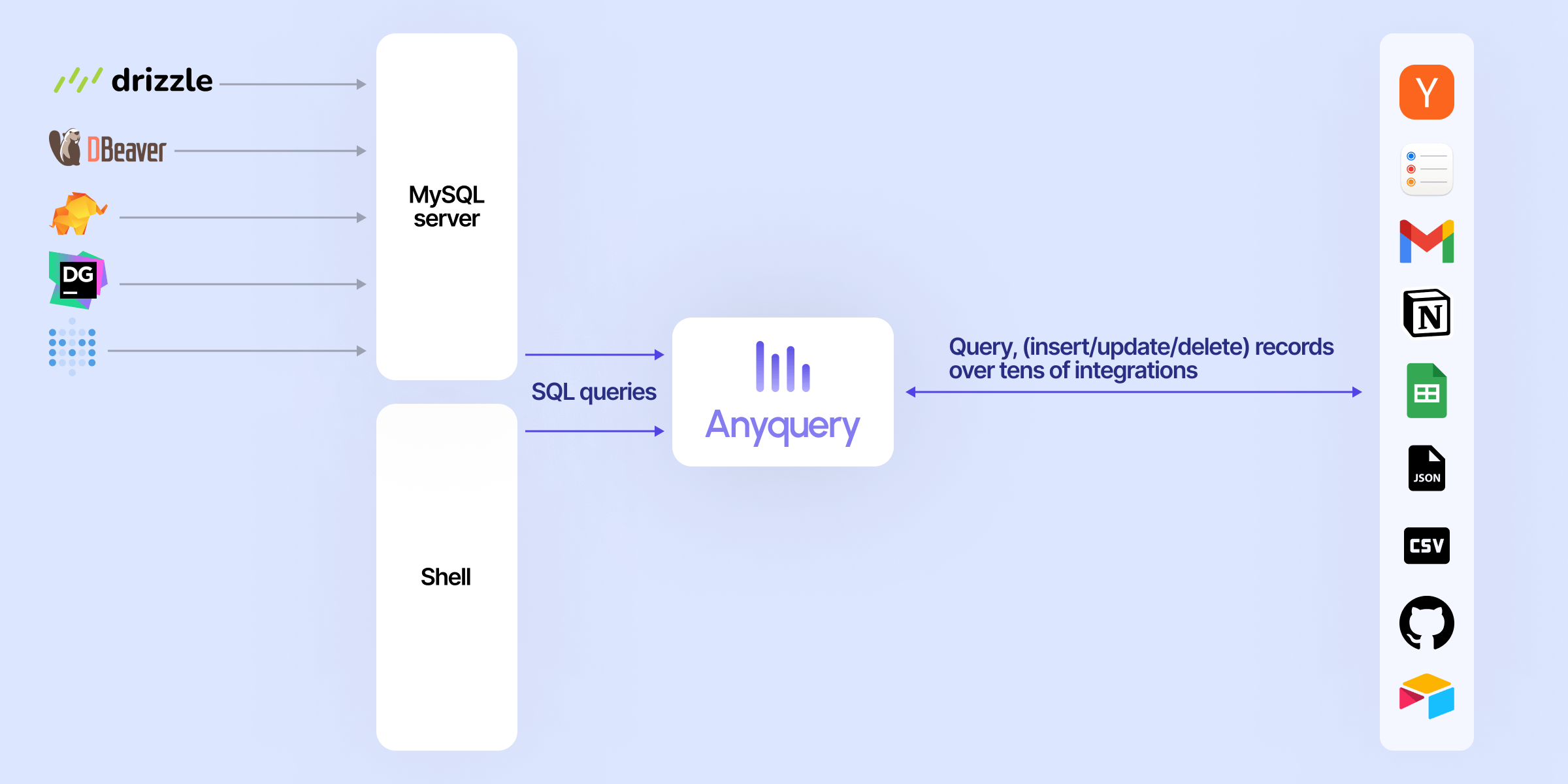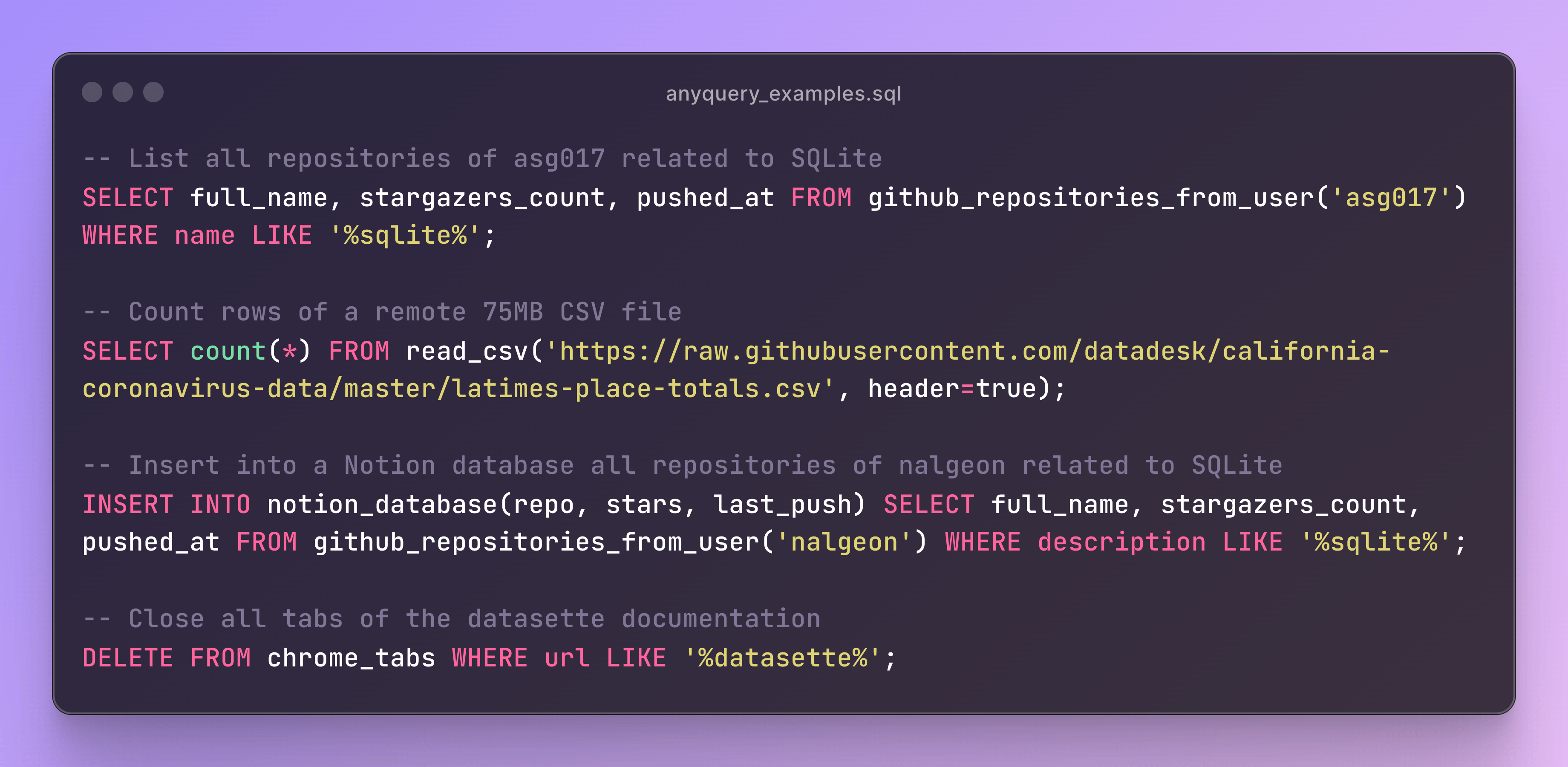Anyquery is a SQL query engine that allows you to run SQL queries on pretty much anything. It supports querying
It can also connect to
Finally, it can act as a
LLMs can connect to Anyquery using the
# To be started by the LLM client
anyquery mcp --stdio
# To connect using an HTTP and SSE tunnel
anyquery mcp --host 127.0.0.1 --port 8070You can also connect to clients that supports function calling (e.g. ChatGPT, TypingMind). Refer to each
# Copy the ID returned by the command, and paste it in the LLM client (e.g. ChatGPT, TypingMind)
anyquery gptThe anyquery in your terminal to open the shell mode. Then, run the following query:
You can also launch the MySQL server with anyquery server and connect to it with your favorite MySQL-compatible client.
anyquery server &
mysql -u root -h 127.0.0.1 -P 8070The
brew install anyqueryecho "deb [trusted=yes] https://apt.julienc.me/ /" | sudo tee /etc/apt/sources.list.d/anyquery.list
sudo apt update
sudo apt install anyqueryecho "[anyquery]
name=Anyquery
baseurl=https://yum.julienc.me/
enabled=1
gpgcheck=0" | sudo tee /etc/yum.repos.d/anyquery.repo
sudo dnf install anyqueryscoop bucket add anyquery https://github.com/julien040/anyquery-scoop
scoop install anyquerywinget install JulienCagniart.anyquerychoco install anyqueryAnyquery is plugin-based, and you can install plugins to extend its functionality. You can install plugins from the
Anyquery is licensed under the AGPLv3 license for the core engine. The RPC library is licensed under the MIT license so that anyone can reuse plugins in different projects.
The plugins are not subject to the AGPL license. Each plugins has its own license and the copyright is owned by the plugin author. See the LICENSE file for more information.
If you want to contribute to Anyquery, please read the
You can have a brief overview of the project in the










